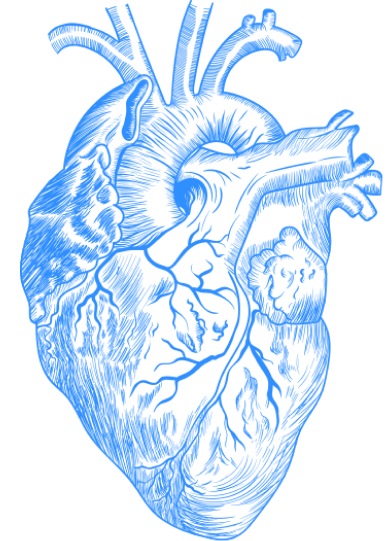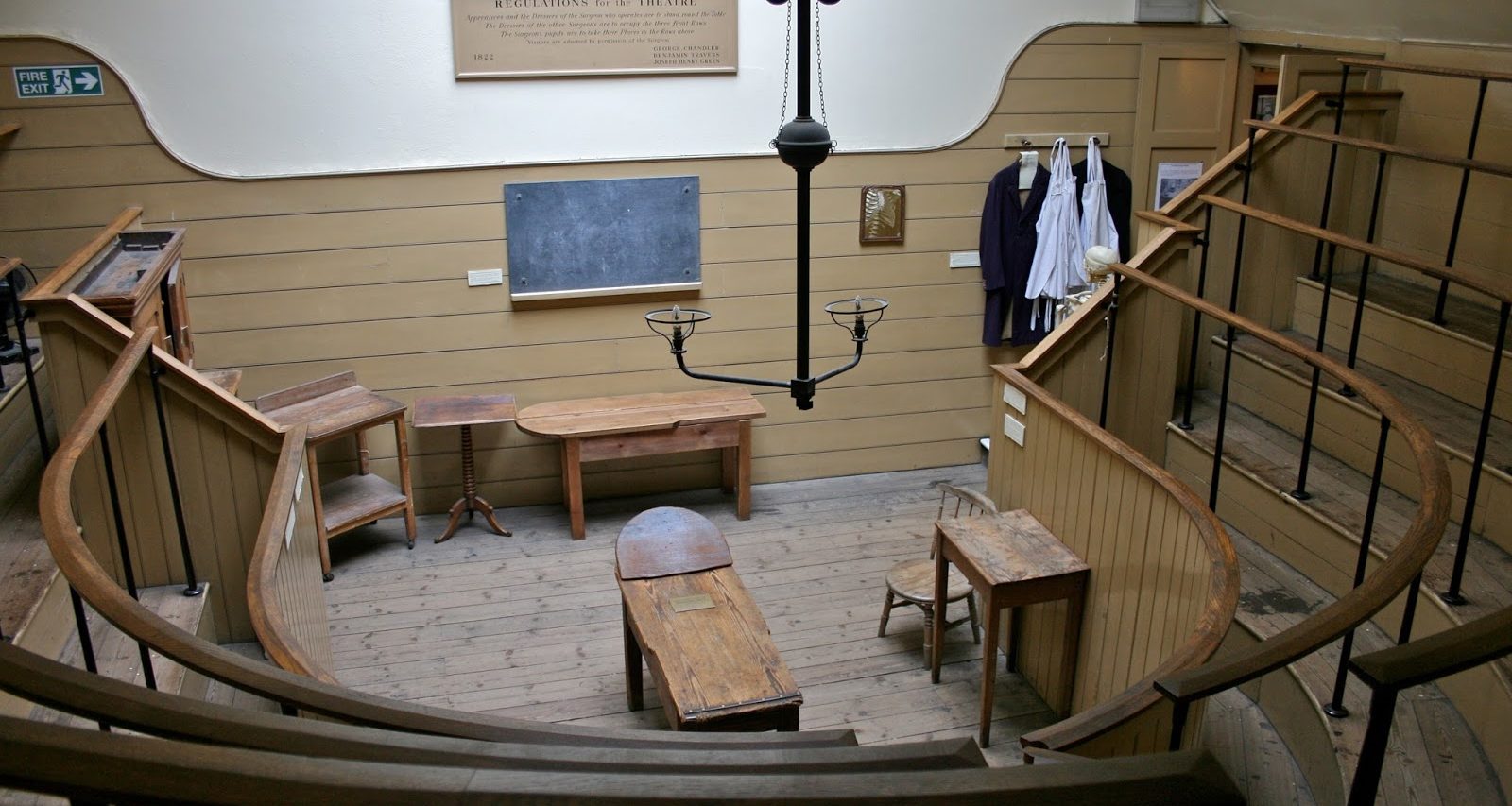
People sometimes assume that every doctor feels a calling or has a special skill for one area of medicine or another. But the truth is very different for most doctors.
 |
| Old operating theater in London Wikimedia Commons (Mike Peel, CC BY-SA 4.0) |
When students begin medical school they don’t actually know what medicine entails. Maybe they’ve followed physicians around or worked in a lab. But that is completely distinct from being in a hospital for twelve to fourteen hours a day writing notes, calling consults, rounding on patients, operating, or delivering babies. And even when young students do see these things, they usually watch from afar and don’t fully understand what’s going on. The hierarchy, the language, and the rapid exchange of information remain a mystery.
Nevertheless, matriculating medical students still have ideas about what specialties they want to practice. Walk around an auditorium during an orientation and most budding physicians will say they’re interested in one field or another. This is completely understandable; something motivates people to apply to medical school. I thought seriously about becoming an emergency-medicine doctor. I had worked as an EMT in New York and loved the excitement of emergencies, the rush of adrenaline, and the range of patient presentations. But I didn’t really know what it was like to work in an emergency room for a twelve-hour shift.
Once medical school starts, things slowly change. As they study the biological systems and dissect in the anatomy lab, some students realize that they now feel dispassionate towards what they once loved. Suddenly, the eye or the heart or the skin is not as interesting as the lungs or the brain or the intestinal system. Granted, this is all still theoretical — it is early, and the students have not been inside the hospital yet. But inklings arise and ideas take hold. I enjoyed many of the educational blocks during medical school and even had a particular affinity for hematology and gastroenterology, while taking a dislike, surprisingly, toward neurology (I am now a neurology resident).
It is during the third year of medical school when professional ambitions take shape, as students work in the hospital and clinic. They rotate through general surgery, psychiatry, emergency medicine, and neurology, among other specialties, getting a quick but deep sense about how these areas work. They participate in surgeries, clinic appointments, and hospital codes. Decisions about a future specialty often form during these samplings.
But there is often much more to those decisions. I liked nearly everything during third year. I found the operating room fascinating. You stand at the operating table and assist the surgery residents and attending as they open up the patient and take out parts of the intestine or the gallbladder. You peer into a living human body in real time. You see the problem; you fix or remove it; and then you sew the patient’s skin back together. Other specialties are similarly awe-inspiring. On my obstetrics rotation I delivered babies. In the emergency room, I participated in trauma codes and watched the effects of treating drug overdoses. There is so much to marvel at in medicine that each rotation is appealing in some way. How can a student settle on one specialty?
When faced with this impasse, another deciding factor is often a teacher or mentor. After all, the word “doctor” comes from the Latin verb docere, which means “to teach.” The degrees we receive when we graduate from medical school read M.D., or Medicinae Doctor — “teacher of medicine.” So when we speak of a doctor’s purpose it is implied in the word that the purpose is not just to heal the sick but to teach the next generation of doctors, and also one’s patients. Notice this passage from the Hippocratic Oath:
I swear by Apollo The Healer…. To hold my teacher in this art equal to my own parents; to make him partner in my livelihood; when he is in need of money to share mine with him; to consider his family as my own brothers, and to teach them this art, if they want to learn it, without fee or indenture; to impart precept, oral instruction, and all other instruction to my own sons, the sons of my teacher, and to indentured pupils who have taken the physician’s oath, but to nobody else.
 |
| Image via Flickr |
These lines that deal with the doctor-student relationship come before the parts about the doctor-patient relationship. It is one of the few professions left in this country that still functions as an apprenticeship (somewhat similar, in a few respects, to being a Ph.D. student under an adviser). One studies a specific topic very intensely for an extended period of time with a group of professionals who teach you how to do what they do. This means that who teaches you matters as much as what you’re taught.
When I rotated through neurology, the subject area excited me, but I was particularly impressed by everything about the doctors. They took the time to explain things to students, which in the busy context of the hospital and clinic isn’t always a priority. They treated patients with great respect and kindness. They knew an impressive amount about the subject and beyond. I felt inspired. Though many other physicians in internal medicine, pediatrics, and elsewhere were similarly impressive, my experiences were more mixed in those departments. This at least was my unique experience; colleagues of mine reached different conclusions.
The physician teachers also affect the culture of each department. For example, emergency medicine doctors are frequently seen as adrenaline junkies. They love going rock climbing, bungee jumping, racing in triathlons, and so forth. This is not true across the board, but one likely finds a higher proportion of people who have those hobbies in emergency medicine. Specialties fit certain personalities or interests. I found that more neurologists shared my interests — many of them study human consciousness, autonomy, and free will, which tie into my fascination with the humanities.
The last element that helps medical students choose a specialty is lifestyle, or how much time one has outside of the hospital. Surgeons seemingly live at work even when they’ve graduated from residency programs. Surgeries can be long and tedious; unexpected disasters occur during operations; patients need emergency surgeries; and many post-operative patients need close monitoring to make sure there are no complications. Pediatricians, by contrast, tend to have much more normal lifestyles. They can work in an outpatient clinic from, say, 8 a.m. to 5 p.m. Any child with an emergency goes to the emergency room, not to the outpatient clinic, and pediatric patients tend not to have as many chronic, difficult-to-manage illnesses as adults (like heart disease or high blood pressure). Pediatricians focus more on preventative measures, such as well visits and vaccines. As a pediatrician it is much easier to keep up with family or hobbies outside of medicine. I loved surgery, but I could not see myself putting in the hours to do it every single day for the rest of my life. Neurology, on the other hand, like pediatrics, often involves a more balanced lifestyle.
And this is how we choose: subject material, mentor and teacher experiences, department personalities, and lifestyle. But the truth is that many of us who go into medicine could be happy in a number of specialties, which is an important perspective to have. It means that we love, broadly, the subject and practice of medicine, and that our curiosity about disease processes and treatments does not start and stop in one specialized silo or another, just as most diseases do not stop in one body part or another. It’s what makes medicine such an enthralling and difficult field.
